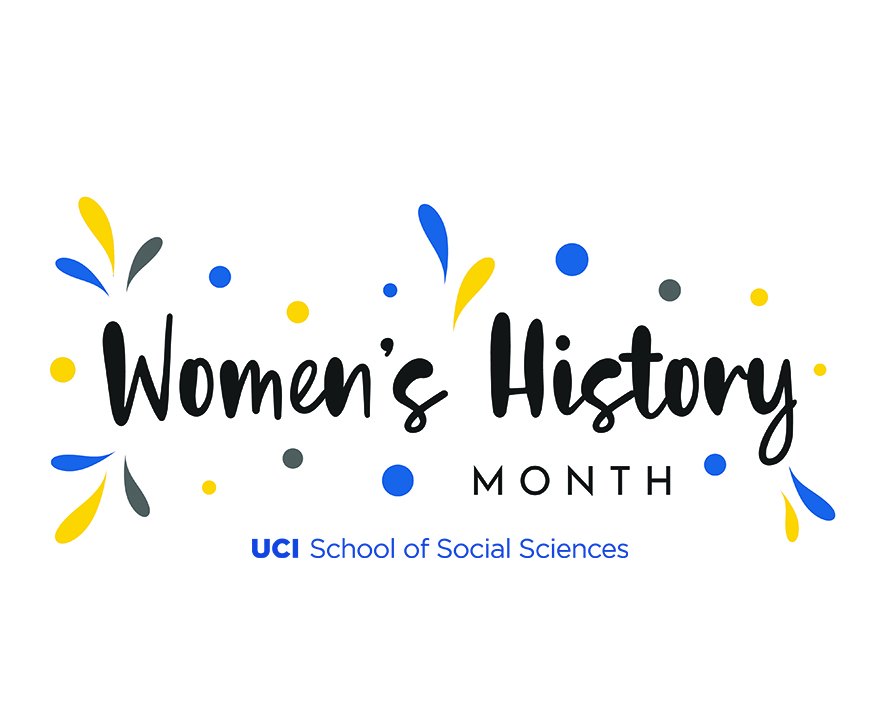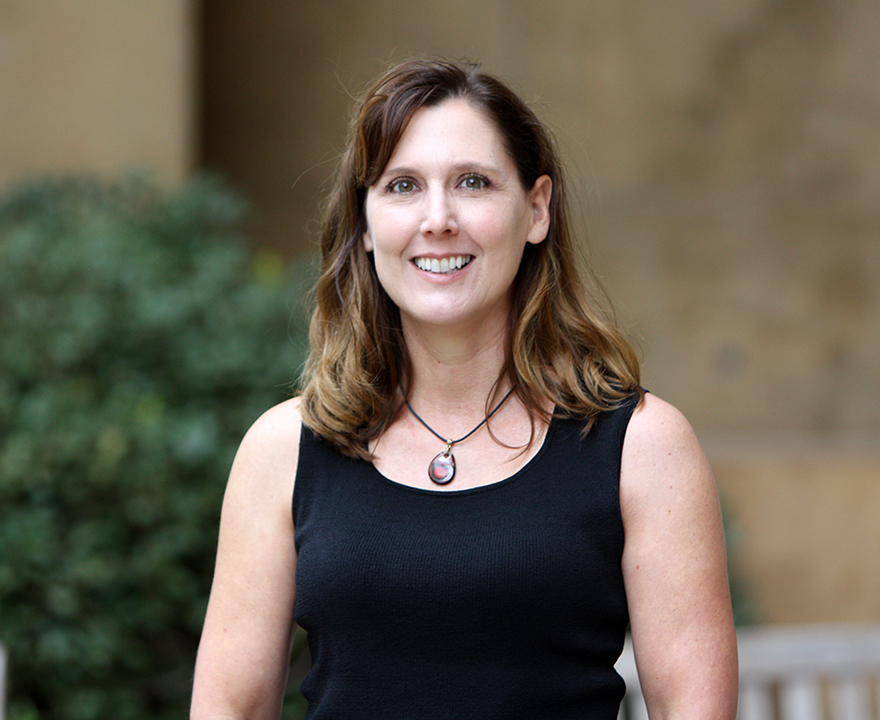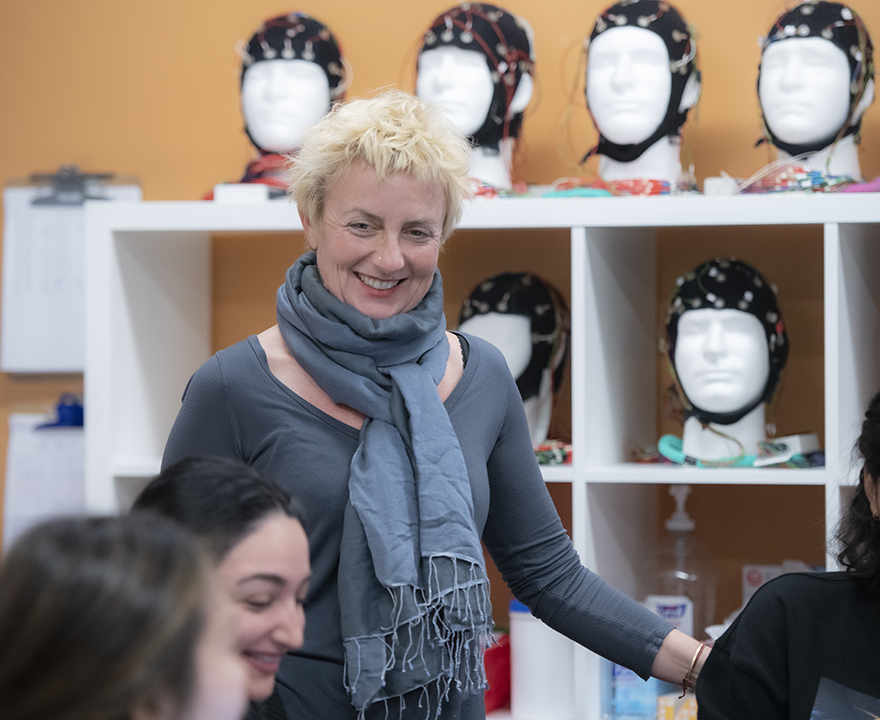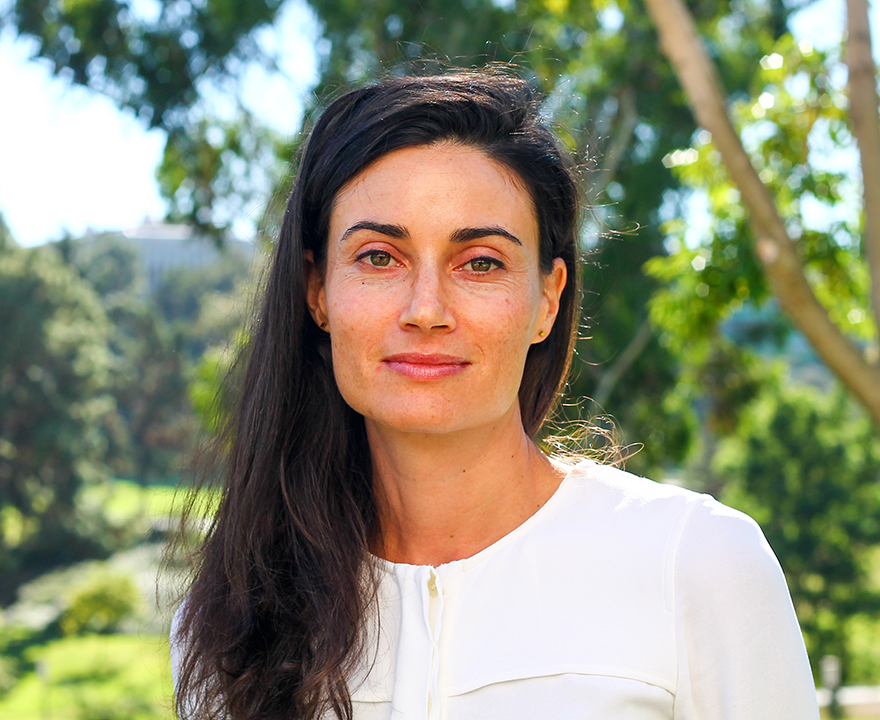Women’s History Month

Women’s History Month
- March 22, 2022
- UCI social scientists weigh in on the vital role women play in advancing equity and inclusion
-----
With Women’s History Month in full swing, we asked UCI social scientists to weigh in on issues they’re thinking about during this commemorative month. Below, professors from cognitive sciences, logic & philosophy of science, and political science offer perspective on the vital role women play in advancing equity and inclusion.
 Mary McThomas
Mary McThomas
Associate Professor, Political Science
“Women’s History Month gives us a chance to pay tribute to the many accomplishments and contributions women have made. However, it also serves to remind us how long we’ve been fighting for still unrealized gender equity. The wage gap persists as does the feminization of poverty. Self-reported incidents of rape and sexual assaults have increased in recent years. The daily experiences of sexual harassment, mansplaining, microaggressions, and sexist stereotypes can be soul crushing. Furthermore, all of these issues are intensified based on – among other things - race/ethnicity, sexual orientation, gender identity, class, ablism, migration status, and relationship to the carceral state. No pro-woman approach can fail to acknowledge the impact of these intersecting systems of oppression. Unfortunately, white feminists often did (do) just that.
Given this backdrop, what appeals most to me these days is abolition feminism as voiced by Angela Davis, Gina Dent, Erica Meiners, and Beth Richie. They argue that abolition of the police state and feminism are so deeply interconnected as to be indistinguishable. For example, sexual violence and police violence are not separate issues to be challenged as discrete problems. Instead of focusing on one or the other, we need to address and resist both forms of violence at the same time. This is similarly true with other practices, processes, and behaviors intended to disempower and control. As a result, we must confront multiple forms of oppression and recognize ways in which they are interrelated. Sexism is just one of the systems of domination we need to dismantle.
Women’s History Month provides space to talk about the important strides made by women as well as the work still to be done. While we stand on the shoulders of the amazing women that came before us, we must continue to fight for a more liberatory future.”
 Sara Mednick
Sara Mednick
Professor, Cognitive Sciences
“I teach a diverse undergraduate population about the science of sleep. We read the primary sources for the fundamental findings in our field. These experimental studies were published in the top journals and have become the foundation for our current understanding of how sleep affects our health, cognition, emotions, and more. All the students read the article for that week and bring questions and discussion points to class, while a small group of them are responsible for presenting the article and leading the discussion. What do you think is the most frequently asked question at each class? It’s: Why are the experimental participants all men? And indeed, their observation is quite often correct; the majority of what we know about the effect of sleep on the brain has been tested in male, and for the most part white, subjects. As I look around the class, at the highly diverse group of young thinkers, in some of whom I hope to inspire the sleep bug (a yen for studying deep questions about why we sleep), my response is usually: Well, that’s because those were the people doing the science and people often study what they know and are comfortable with. This is the reason we know so little about the experience of women, and especially little about women of color. This profound hole in our understanding of half of the Earth’s population is also why it is so important that women from all backgrounds and ethnicities enter and stay in science. Because it is precisely these scientists who will be drawn to understand themselves, and therefore, embark on research directions that by their nature are inclusive. The two most important questions educational institutions, corporations, government agencies can be asking themselves now are: How can we provide opportunities to inspire and draw in a young, diverse female audience? And what are the structural changes that need to take place to better support and keep these women in their chosen fields?”
 Lauren Ross
Lauren Ross
Associate Professor, Logic & Philosophy of Science
“One topic worth reflecting on during Women’s History Month is social inequity—in particular, how inequity is conceptualized and explained with a scientific approach. The topic of scientific explanation has received enormous amounts of attention. For over two millennia, philosophers, scientists, and theoreticians have debated what it takes to provide a legitimate “explanation” of phenomena in the world. Given some target of interest, how do we know what explains it? How do we know what is responsible for it?
While interest in scientific explanation is broad, studies of it have narrowly focused on a few select sciences--usually, physics and biology. Examples from these fields are viewed as the “gold standard” for how explanations work. This is often due to conceptions that the physical and life sciences are more “rigorous,” “exact,” and “principled” than other sciences, including the social sciences and many others.
Increased attention to the social sciences and advances in social philosophy and theory, have begun to overturn many of these views. Influential work by Haslanger (2016) and many others (Ayala-López, Soon, Sankaran) has helped show that rigorous social science explanations exist. This work articulates how they rely on principled methods, justification, and reasoning. This work clarifies how various social outcomes are caused by social structure—that these structures constrain the behavior of individuals and, in so doing, explain their behavior (Ayala-López, Soon, Sankaran).
Work in this area isn’t just important for giving us rigorous explanations of social inequities. It also helps identify what to target so that these outcomes can be changed. Work in this area should inform both our theoretical accounts of explanation and our practical efforts to make the world a better place.”
-----
Would you like to get more involved with the social sciences? Email us at communications@socsci.uci.edu to connect.
Share on:
Related News Items
- Careet RightBringing scientific insight to the causes of individual events
- Careet RightHow does the menstrual cycle impact our brain?
- Careet RightWhy do science and philosophy so often stand apart - and what happens when they come back together?
- Careet RightUC Irvine's Logic and Philosophy of Science Summer Development Program marks fourth year of expanding access to graduate study
- Careet RightDoes a short nap actually boost your brain? Here's what the science says


